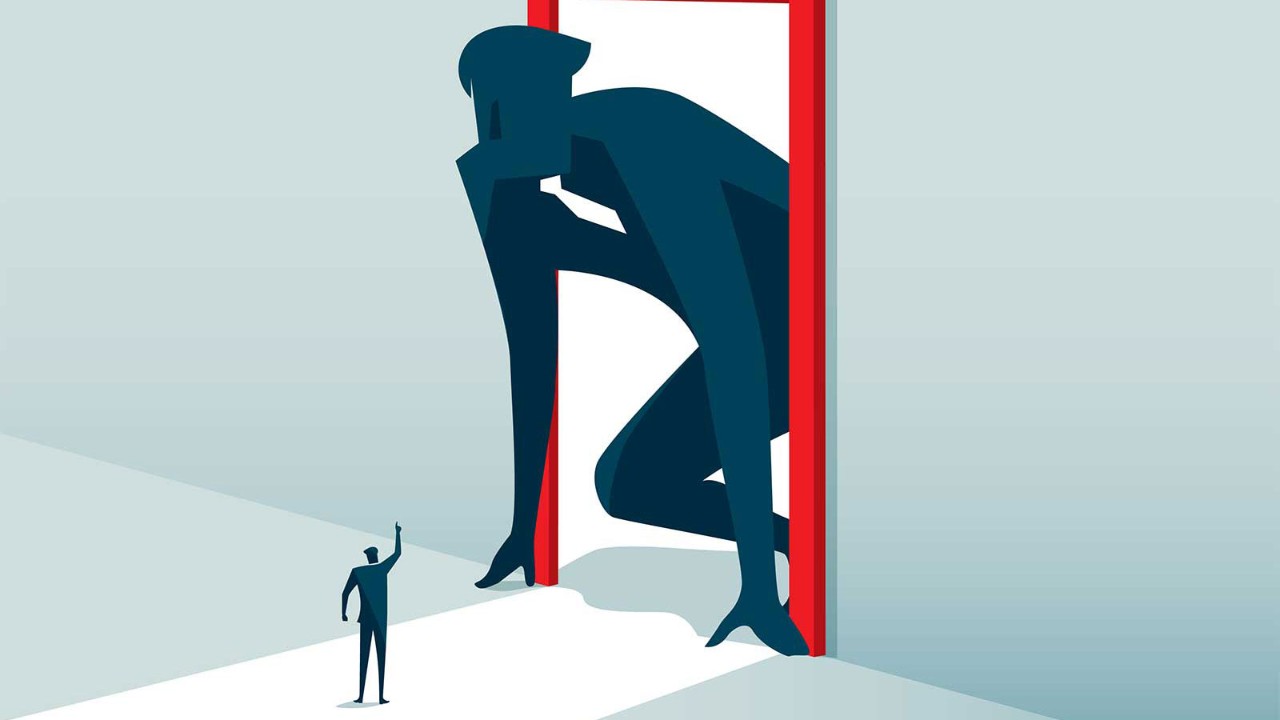
Coaching is big business. It’s a US$4.6bn global industry to be exact – one that has grown 60% since 2020, with growth especially strong in Asia at 86%, the Middle East at 74% and Eastern Europe at 59%, according to the International Coaching Federation.
There are more than 100,000 practitioners worldwide making it increasingly likely that a lot of us at some point in our lives will work with one, whether it’s off our own bats or through an employer. But what exactly do they do, how can they help and how can you help them to help you?
‘A career coach helps in many ways: seeing situations from a different perspective, asking questions to help address limiting beliefs, acting as a sounding board, and ideally having background in your field or role in order to provide expert advice,’ says Brian Pulliam, a career coach specialising in the tech industry at Refactor Coaching.
‘A good coach will help you face feedback, take action and ultimately advance your aspirations’
The right career coach can make a huge difference to your career, says Tim Toterhi, human resources officer and career coach at Plotline Leadership. ‘For some, that involves assistance with interviewing and salary negotiations. For others, it’s all about career transitions or expansions.
‘When it comes to senior-level top performers, the focus is often nuanced. Whether it’s learning to leverage a strength, remedy a skill gap or recognise a career-stalling error, a good coach will help you face feedback, take action and ultimately advance your aspirations.
‘Regardless of focus area, the best outcome stems from establishing clear goals and success metrics, and a logical, step-by-step plan to bridge the gap.’
The right choice
First and foremost, find a coach who aligns with your experience level and has a familiarity with your industry, says career coach Dr Kyle Elliott.
‘This is particularly important if you are a senior manager or executive, as leaders face challenges when navigating their job searches and careers, and require a specific, customised strategy and approach.’
The perfect client, according to Eva Chan, professional CV writer and career coach at Resume Genius, is open to change, ready to invest time and effort, and welcomes constructive criticism.
‘Coaching is a partnership, so you will get out of it as much as you’re willing to put in’
‘It’s not about having all the answers but rather about being willing to explore and learn,’ she says. ‘For our partnership to be effective, honesty and transparency are vital. I encourage clients to share their thoughts, fears, and ambitions freely, which enables me to provide tailored, impactful guidance.’
For Toterhi, the perfect client is purposeful, action orientated and committed to the work. ‘Coaching requires focus, an investment of time, energy and resources,’ he says. ‘A client who is engaged will secure a better return on that investment.’
Team work
Author, life and career coach Sally Anne Carroll simply doesn’t believe in perfect clients or perfect coaches, only engaged and authentic ones.
‘Coaching is a partnership, so you will get out of it as much as you’re willing to put in. I encourage clients to bring a growth mindset, or the desire to build one; a willingness to try out new ideas, actions and perspectives; curiosity; and, if they have it, a dream of what might be possible for them or an area of development that feels meaningful.
‘While some people think they need to know what they want to achieve before they come to coaching, that’s not necessary. If you’re not sure where you want to go in your career or you don’t have a specific goal in mind yet, coaching is a very effective way to find that clarity.’
Top tips
When working with a career coach:
- Be open. ‘Be open to new ideas and insights, and to someone challenging your ideas,’ says Jessica Sweet, career coach at Wishingwell Coaching.
- Be honest. ‘It’s vital that you are candid and specific about the results you want to achieve,’ says Tim Toterhi, human resources officer and career coach at Plotline Leadership. ‘Honesty is the foundation of a coaching relationship,’ says Eva Chan, professional CV writer and career coach at Resume Genius. ‘The more open you are about your dreams, challenges and fears, the better equipped the coach will be.’
- Put in the effort. ‘You came for change, and that doesn’t happen without you,’ says Sweet. ‘If you don’t show up or don’t put in the thought, you won’t get anything out of the process. Bring your goals, problems, dilemmas, learning moments and wins. Just be willing to be vulnerable and share.’
- Be curious. ‘Coaching is all about learning and growing,’ says author, life and career coach Sally Anne Carroll. ‘Let go of needing all the answers and instead be willing to ask the questions.’
- Be willing to challenge. ‘Don’t take your coach’s ideas as the only truth. You are exploring a new way of doing and thinking together. You are the expert on you,’ says Sweet.
- Take action. ‘Real growth comes from applying the insights gained during our sessions to your everyday life,’ says Chan. ‘The magic happens in the execution; that’s where you’ll see transformation and growth.’



